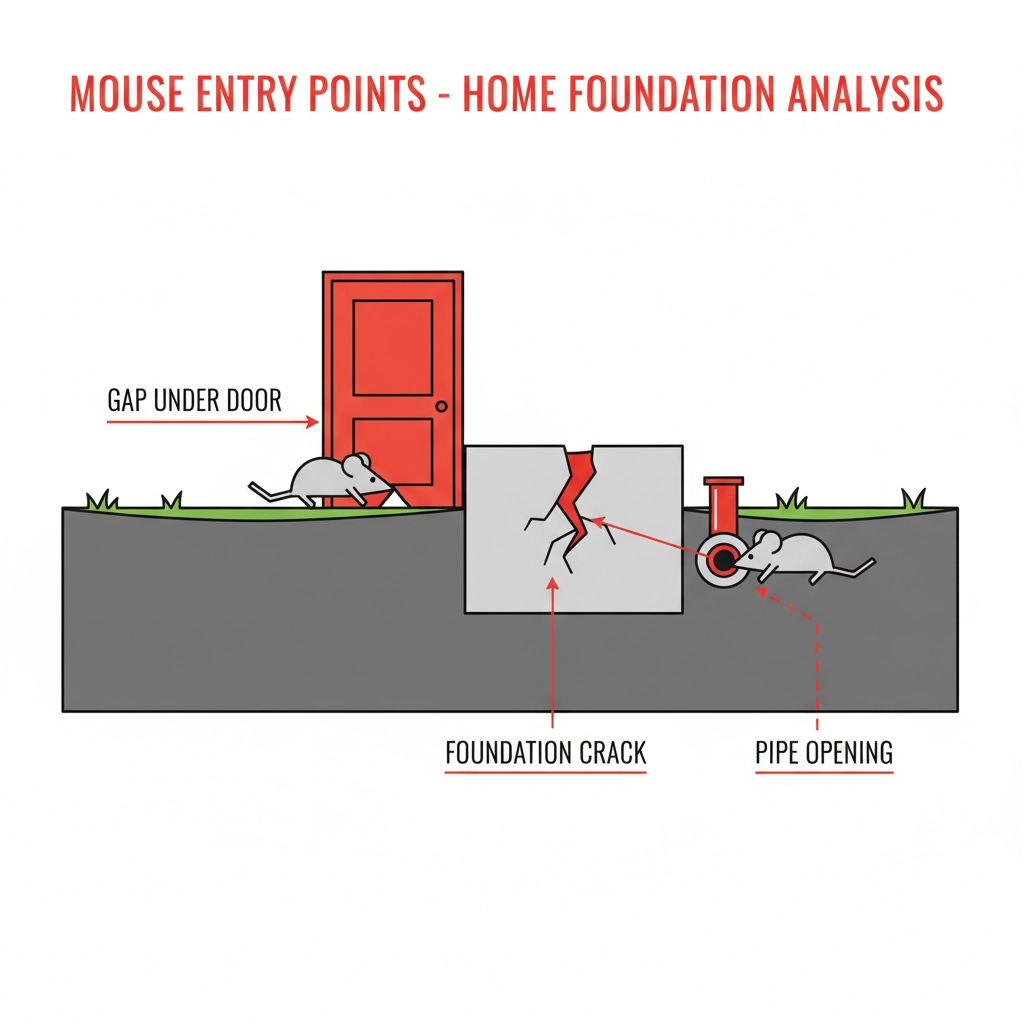Mice in Haliburton County: How to Spot, Prevent, and Deal with These Unwelcome Guests
- Targeted Wildlife and Pest Solutions

- Sep 26, 2025
- 5 min read
Living in Haliburton County means enjoying beautiful forests, pristine lakes, and peaceful cottage country. Unfortunately, it also means dealing with mice that see your home or cottage as the perfect place to set up shop. These small rodents are more than just a nuisance: they can cause real problems if left unchecked.
Whether you're a year-round resident or cottage owner, knowing how to identify, prevent, and deal with mice is essential for keeping your property safe and comfortable.
How to Spot a Mouse Problem
The Telltale Signs
The most obvious sign you've got mice is finding their droppings. Look for tiny, dark, capsule-shaped pellets about the size of a grain of rice. You'll typically find these near food sources, along baseboards, in cupboards, or anywhere mice travel regularly.
Here's something that might surprise you: mice are incredibly prolific when it comes to waste. A single mouse can produce 60 to 100 droppings per day, depending on food availability. That means even a small infestation can leave behind a lot of evidence quickly.
Other Warning Signs
Beyond droppings, keep an eye out for chewed or gnawed items. Mice have teeth that never stop growing, so they need to constantly chew to keep them worn down. You might find damaged food packaging, cardboard boxes, or even electrical wires: which can create serious fire hazards.
Listen for scratching or scurrying sounds, especially at night when mice are most active. These sounds often come from inside walls, ceilings, or floors where mice travel through your home's structure.

Fresh vs. Old Evidence
Fresh mouse droppings are dark and soft, while older ones become dry and gray. If you're finding fresh droppings regularly, you've got an active infestation that needs immediate attention.
The Real Risks of Mice
Health Hazards
Mice aren't just annoying: they pose genuine health risks. They can carry and spread diseases through their droppings, urine, and saliva. Some of these diseases can be transmitted to humans through direct contact or by breathing in dust contaminated with mouse waste.
Their constant urination (remember, they can urinate up to 100 times per day) creates unsanitary conditions throughout your home. While you can see the droppings, their urine is less visible but equally problematic, often creating strong odors over time.
Property Damage
Mice cause significant structural damage by chewing through materials. They'll gnaw on wood, insulation, and even electrical wiring, which can create fire hazards. The cost of repairing mouse damage often far exceeds the cost of professional prevention and removal.
Food Contamination
Once mice get into your food storage areas, they contaminate everything they touch. They don't just eat the food: they urinate and defecate on it, making it unsafe for consumption.
Prevention: Your First Line of Defense
Exterior Prevention
Start your mouse-proofing efforts outside your home. Keep woodpiles, compost bins, and stored materials away from your building's foundation. These provide perfect hiding spots and encourage mice to live close to your structure.
Trim vegetation around your home's exterior, removing potential cover that mice use to approach undetected. If you maintain bird feeders, position them well away from your house: spilled seeds attract mice and other wildlife.
Sealing Entry Points
Mice can squeeze through surprisingly small openings. Focus on sealing all potential entry points including gaps around doors, windows, and vents. However, don't use regular caulk or expanding foam: mice can chew through these materials easily.
Instead, use galvanized metal mesh, concrete, or stainless steel wool for permanent solutions. Don't forget about less obvious entry points like uncapped chimneys, which mice commonly use to access homes.

Interior Management
Keep your home clean and clutter-free. Store all food items in sealed containers, including pet food. Avoid leaving pet food out overnight, as this creates an easy food source for mice.
Use sealed garbage bins and dispose of waste regularly. A clutter-free environment reduces hiding spots and nesting opportunities, making your home less attractive to mice.
Natural Deterrents
Several natural substances effectively repel mice. Peppermint oil and vinegar work particularly well: soak cotton balls in these substances and place them strategically around your home, especially near potential entry points.
Some homeowners find success with ultrasonic devices that emit high-frequency sounds unpleasant to mice but generally safe for humans and pets.
Cottage-Specific Considerations
Winterizing Against Mice
If you own a cottage in Haliburton County, fall preparation is crucial. As temperatures drop and cottages close for winter, forest creatures seek sheltered places to spend the cold months.
Remove all food sources before closing your cottage for the season. Mice can chew through many container types, so don't assume your food is safe just because it's packaged. Even if mice do gain entry, lack of available food will limit their population growth significantly.
When DIY Isn't Enough
Professional Control Methods
Local pest control companies serving Haliburton County understand the unique challenges of our forested environment. Professional services typically use bait stations both inside buildings at high-activity areas and outside at regular intervals along your building's perimeter.
These bait stations are specifically designed so mice can access them while keeping children, pets, and larger animals safe. Some companies also offer completely chemical-free alternatives focusing on exclusion methods.

Trapping vs. Rodenticides
Trapping remains effective but requires someone available to regularly remove carcasses and reset traps. For properties that aren't frequently monitored: like seasonal cottages: rodenticide offers longer-term control without constant maintenance.
However, in Ontario, more potent rodenticides are no longer available for public purchase, and pellet-type baits can pose dangers if improperly applied. Professional pest control services have access to the most effective baits and know how to apply them safely.
Property Assessment and Ongoing Protection
Professional services typically include comprehensive property assessments to identify problem areas and provide recommendations for reducing mouse habitat. They can install exterior bait stations designed to blend with your landscape while providing ongoing protection.
Many local companies also offer services to make your property more resistant to rodent infestation, addressing both immediate problems and long-term prevention.
Making the Right Choice
Given Haliburton County's woodland environment and the specific challenges it presents, professional assistance often proves most effective for comprehensive mouse control. Local companies understand regional conditions and can provide customized solutions based on your property's unique situation.
Most professional services offer free property assessments and quotes, allowing you to understand the scope of your mouse control needs before committing to treatment programs. This ensures you receive appropriate solutions whether you're dealing with a year-round home, seasonal cottage, or business property.
The key to successful mouse control is acting quickly when you spot the signs. The longer you wait, the larger the problem becomes, and the more difficult and expensive it is to resolve. Don't let these small invaders take over your Haliburton County property( take action at the first sign of trouble.)
Comments